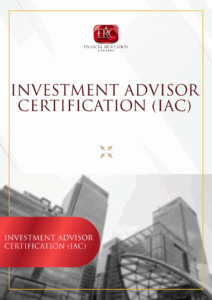Table of Contents
-
Introduction: Why Choosing the Right Financial Certification Matters
-
Overview of the Level 4 Investment Advisor Certificate
-
Key Features of the Level 4 Certification
-
Comparison with Other Financial Certifications
-
Level 4 vs. CFA (Chartered Financial Analyst)
-
Level 4 vs. CFP (Certified Financial Planner)
-
Level 4 vs. CISI Certifications
-
Level 4 vs. Local/Regional Certifications
-
-
FCA Standards and Why They Matter
-
Skills and Knowledge Gained in the Level 4 Certificate
-
Career Benefits of the Level 4 Certificate vs. Other Paths
-
Flexibility: Studying While Working
-
Global Recognition: UK and Beyond
-
Pros and Cons of the Level 4 Certification Compared to Others
-
Resources and Study Support
-
FAQs
-
Why the Level 4 Certificate Stands Out
Introduction: Why Choosing the Right Financial Certification Matters
In a financial industry crowded with different certifications, it’s crucial to choose the one that aligns with your career goals, regulatory requirements, and long-term ambitions. The Level 4 Investment Advisor Certificate UK has become one of the most respected entry-to-mid level certifications for finance professionals, especially in roles involving client-facing investment advice.
But how does it stack up against other well-known qualifications like CFA, CFP, and CISI certifications? This article breaks down the strengths, unique benefits, and comparisons to help you make an informed choice.
Overview of the Level 4 Investment Advisor Certificate
The UK Level 4 Investment Advice Certification serves as a regulatory benchmark for those providing retail investment advice. It is recognised by the FCA approval framework and trusted across financial institutions.
It transforms graduates and professionals into capable advisors, as detailed in the beginner’s guide and from graduate to advisor career path resources.
Key Features of the Level 4 Certification
-
Focus on retail investment products.
-
Emphasis on ethics, suitability, and risk.
-
Embedded professional integrity standards.
-
FCA-aligned regulatory training.
-
Flexible learning to study while working.
It prepares candidates for advisory and compliance roles across retail and institutional finance.
Comparison with Other Financial Certifications
Level 4 vs. CFA (Chartered Financial Analyst)
-
CFA: Global, investment management focused, very technical, takes several years.
-
Level 4: Faster to complete, tailored to UK FCA regulations, directly client-facing.
Level 4 vs. CFP (Certified Financial Planner)
-
CFP: Broad planning including taxation, retirement, insurance.
-
Level 4: More concentrated on retail investment products and regulatory suitability in the UK.
Level 4 vs. CISI Certifications
-
CISI: Offers a wider range of certifications (operations, compliance, wealth management).
-
Level 4: More specialised for retail financial advice under FCA supervision.
Level 4 vs. Local/Regional Certifications
-
In UAE, India, and other regions, local certifications exist but may not carry the same global recognition as the career benefits of Level 4 certification.
FCA Standards and Why They Matter
Unlike many global certifications, the meeting FCA standards Level 4 certificate ensures advisors meet regulatory requirements in the UK.
This includes:
-
Suitability tests.
-
Risk analysis frameworks.
-
Professional disclosure obligations.
This makes the certification not only academic but also practical for everyday client interactions.
Skills and Knowledge Gained in the Level 4 Certificate
Graduates gain:
-
Risk assessment methods.
-
Product analysis for retail investments.
-
Ethical frameworks to build trust.
-
Client communication skills.
-
Compliance and reporting knowledge from topics covered in the certificate.
Career Benefits of the Level 4 Certificate vs. Other Paths
Unlike certifications that may focus on theory, the Level 4 is career-oriented. According to the career benefits guide, it:
-
Boosts employability in UK and global markets.
-
Helps secure advisory, wealth management, and compliance roles.
-
Offers a structured career progression path.
By comparison, CFA and CFP may be better for global asset management or financial planning specialists, but they take longer to achieve.
Flexibility: Studying While Working
One of the strongest advantages is the ability to study while working. Many professionals find it manageable alongside full-time roles.
By contrast, CFA exams demand significant full-time dedication.
Global Recognition: UK and Beyond
While rooted in the UK, the certificate carries international recognition. It is valued across UAE, India, and global banking hubs. The graduate-to-advisor journey highlights how professionals use it to expand careers abroad.
Pros and Cons of the Level 4 Certification Compared to Others
| Pros | Cons |
|---|---|
| FCA-approved, regulatory credibility | Limited outside UK vs. CFA/CFP |
| Faster to complete | Not as deep in asset management as CFA |
| Strong career entry point | Requires continuous CPD |
| Practical skills for client advice | Narrower focus vs. broader CFP |
Preparation is supported through:
-
Study groups, case studies, and flexible learning methods.
This ensures candidates don’t just pass, but excel.
FAQs
1. How is Level 4 different from CFA?
Level 4 is faster, client-advice oriented, and FCA-regulated; CFA is longer, technical, and global.
2. Is it recognised outside the UK?
Yes, it has international recognition in markets like UAE and India.
3. Can I study while working?
Yes, see the study while working guide.
4. Which is harder, Level 4 or CFA?
CFA is more technical and takes years, while Level 4 is intensive but achievable in less time.
5. What career paths open with Level 4?
Financial advisor, wealth manager, compliance officer, or progression into senior advisory.
Why the Level 4 Certificate Stands Out
When compared with global designations, the Level 4 Investment Advisor Certificate emerges as a practical, FCA-regulated, and career-focused option. It bridges the gap between academic learning and real-world advisory roles, making it one of the most valuable choices for those looking to enter or progress in financial services.
Financial Regulation Courses